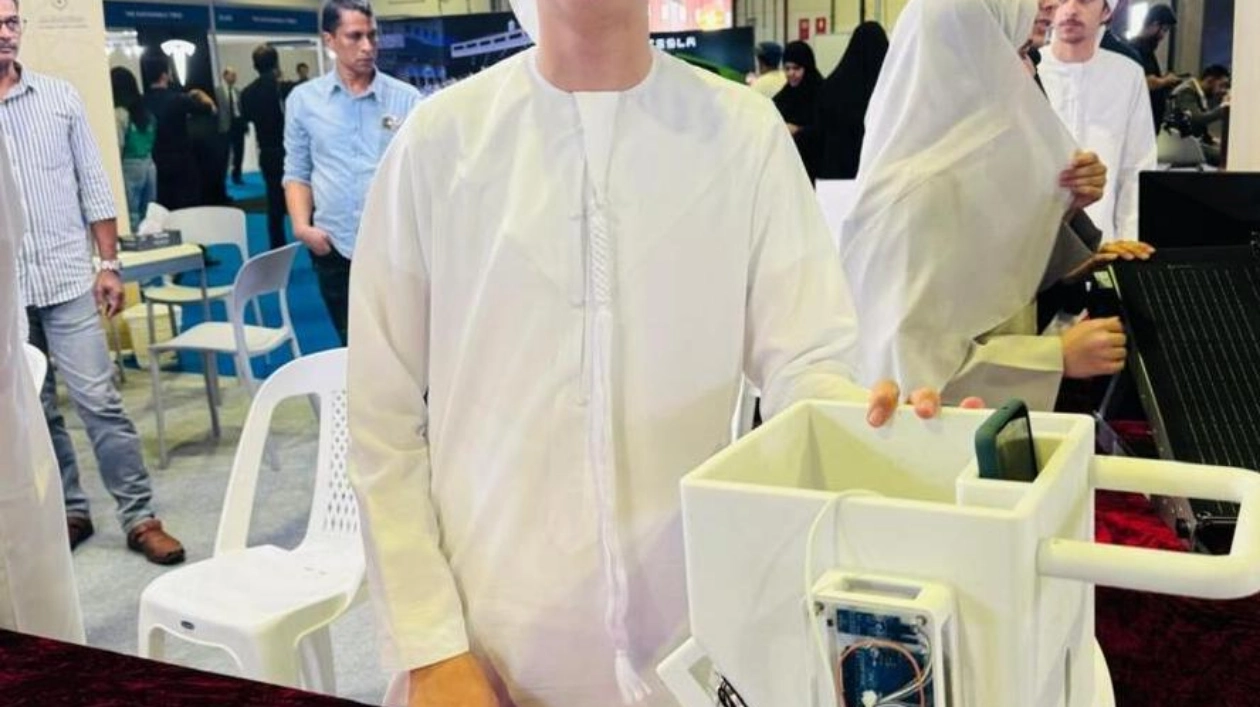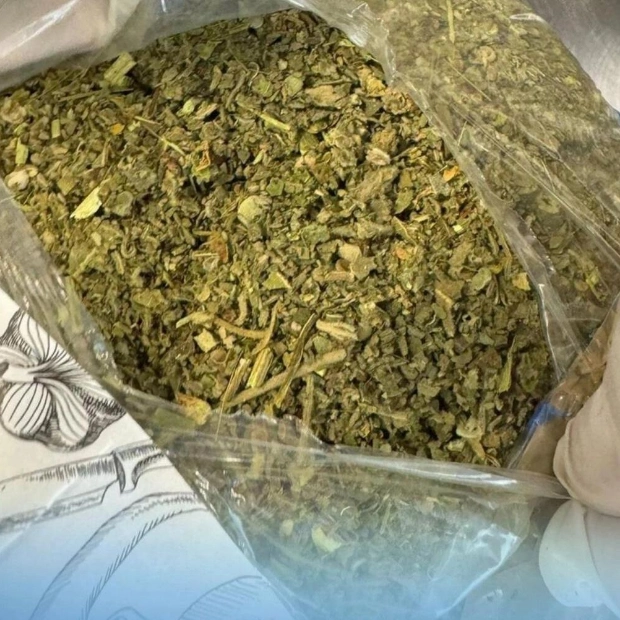Ever imagined a shopping cart that can charge your phone? Thirteen-year-old Hamdan Jumah Hassan Rahmah has designed a 3D printed shopping cart that converts its kinetic energy (generated when the cart is pushed) into electrical energy, which is then stored in an attached battery. This stored energy can be used to charge phones while shopping. Hamdan, a member of the Emirates Science Club (ESC), showcased his innovation at the Water, Energy, Technology, and Environment Exhibition (WETEX) in Dubai, which commenced on Tuesday.
"This is my first project as part of ESC," Hamdan said. "I have been granted a patent for it. My goal is to refine this design and make it available for public use." WETEX, first organized in 1999, serves as a platform for showcasing the latest technological advancements and discussing trends in water, energy, environmental sustainability, and renewable energy.
Hamdan acknowledged that there is still much work to be done. "For instance, the wheels don’t roll smoothly, so I need to improve that," he noted. The lightweight cart also features an anti-theft system.
Seventeen-year-old Sultan AlZarooni, inspired by his frequent visits to his family’s banana farm in Al Ain, developed a system that measures weather conditions to deliver the optimal amount of water to each plant, saving time and money for farmers. He tested the system for over a year before implementing it on his father’s farm.
"I wanted the system to be flawless before testing it on the farm," Sultan told Khaleej Times. "Over the past two years, I have been refining the system based on my experiences. I discovered that humidity is crucial, so I added a humidity sensor and coded it accordingly. The system is now functioning excellently on the farm, tailored to the specific needs of the plants and their age." Sultan is also a member of ESC, which, established in 1990, conducts training programs and sessions for young people in various scientific and technological fields. Its activities are categorized into nine areas, including robotics, 3-D printers, and carpentry, and are managed by skilled and experienced engineers and inventors.
On his computer, Sultan demonstrated how the system irrigated for precisely 5.8 seconds when the temperature was 35°C. Sultan, who has won several international competitions, including in China and Turkey with this project, aims to make his prototype available to the public soon. "I want to test it in various farms under different weather conditions to perfect it," he said. "Then, I plan to start selling it to farmers."
Another project showcased was a smart solar panel by 13-year-olds Manal Maher Albastaki and Fatma Mohammed Alfalasi. The girls explained that solar panel efficiency decreases with rising temperatures. "Our approach is to reverse engineer a thermoelectric module placed under the solar panel to remove heat," Fatma explained. "This enhances the panel’s efficiency. During trials, we observed a 10 percent increase in efficiency."
According to Manal, companies can benefit significantly from this innovation. "They will be able to obtain the same amount of solar energy using smaller panels," she said. "This means they won’t need to install large, cumbersome panels and can opt for smaller ones."






